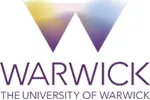We're moving! This site will be relocating to goingto.university in 2026. Please update your bookmarks to the new address.


the United Kingdom
University of Warwick| The award | How you will study | Study duration | Course start | Domestic course fees | International course fees |
|---|---|---|---|---|---|
| MSc | Full-time | 1 year | - | - | - |
| MSc | Part-time | 2 years | - | - | - |
| PG Dip | - | - | - | - | - |
Big Data and Digital Futures is also offered as a Postgraduate Diploma: 9 months (full-time), 18 months (part-time) on the MSc pro-rata fee basis.
Increasingly, big data are used to track and trace social trends and behaviours. In turn, governments, business and industries worldwide are rapidly recruiting graduates who can understand and analyse big data. This course addresses how big data challenge traditional research processes, and impact on security, privacy, ethics, and governance and policy. You will learn practical and theoretical data skills, both in quantitative methods and the wider theoretical implications about how big data are transforming disciplinary boundaries.
You will take three core modules and a dissertation. Three option modules (see below) allow further specialisation. Lab work, report writing, data skills training and guest lectures by industry experts will form an integral part of your learning experience. You will be invited to attend short certified ‘Masterclasses’ to further extend your methodological repertoire. An annual Spring Camp on a key theme (e.g. health; networks; food) is also provided, allowing you to gain expertise in a wide range of cutting-edge quantitative methods.
You don’t need a computer science, mathematics or statistics background to apply. The focus is on conducting and understanding applied quantitative social science, so a willingness to engage with real world social science issues is essential.
Core modules:
Masters Optional Modules:
Visualisation; Social Informatics; Big Data Research: Hype or Revolution?; Complexity in the Social Sciences; Media and Social Theory; Digital Sociology; Post Digital Books; User Interface Cultures: Design, Method and Critique; Playful Media: Ludification in the Digital Age.
Optional modules from other departments may be considered as part of your degree programme. Should you wish to undertake an outside option, you will need to discuss this with the Masters Convenor.
Please note: not all optional modules may be available each year; you should therefore check with the Centre. New modules or modules named may be amended or advertised for the next academic year.
Assessment: A combination of essays, reports, design projects, technical report writing, practice assessments, group work and presentations and an individual research project.
Course Laptops: All students on CIM degrees are given a laptop to use.
MSc
Full time:
Home/EU: £8,970 per year
Overseas: £19,180 per year
Part time:
Home/EU: £4,885* per year
Overseas: £9,990* per year
* students pay £775 in 16/17 and £800 in 17/18 for laptop in Year 1 only
PGDip
Big Data and Digital Futures is also offered as a Postgraduate Diploma on the MSc pro-rata fee basis.
Full time:
Home/EU: £6,250 per year
Overseas: £13,055 per year
Part time:
Home/EU: £3,525* per year
Overseas: £6,925* per year
* students pay £775 in 16/17 and £800 in 17/18 for laptop in Year 1 only
Find out more about Fees and Funding
Department website
Centre for Interdisciplinary Methodologies
Application
Applying to Warwick
Contact University of Warwick to find course entry requirements.
Below are some suggested courses at other providers that you may also be interested in:
Screenwriting BA (Hons), Cert HE
Catalyst - Institute for Creative Arts and Technology
Find out moreCoastal Communities and Regional Development Master Degree
University Centre of the Westfjords
Find out moreIf you do not meet the entry requirements for this course then consider one of these postgraduate preparation courses from another institution:
Graduate Diploma of Engineering (Safety, Risk and Reliability)
Engineering Institute of Technology
Find out moreGraduate Diploma of Professional Engineering (Civil Engineering)
University of Southern Queensland
Find out moreGraduate Diploma of Technology (Software Engineering) (FedUniv at IIBIT)
International Institute of Business & Information Technology (IIBIT)
Find out moreThere are 337 other courses listed from University of Warwick. A selection of these are displayed below:
Advanced Clinical Practice for Health Care Professionals (PGCert) PG Cert
University of Warwick
Find out moreJoin the StudyLink email list and never miss a chance to turn your study abroad dreams into reality!
